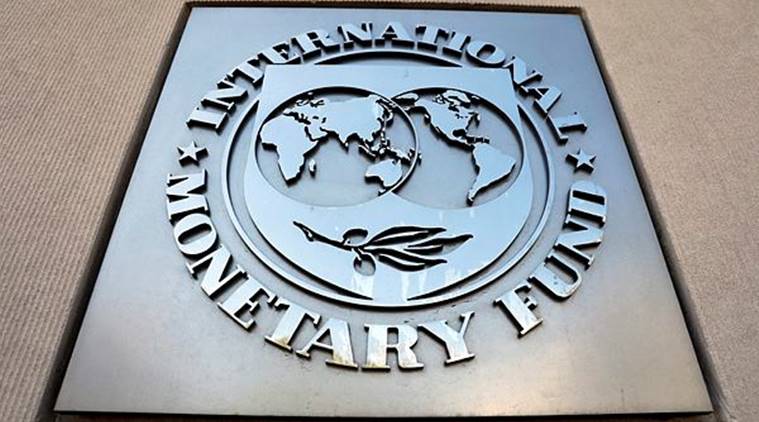View from the Neighbourhood: Bail-out woes
While the Fund has not made any explicit reference to China, its most influential member, the US, has been unequivocal that Pakistan discloses the debt it owes to China, especially those related to the China-Pakistan Economic Corridor (CPEC).
Published: October 15, 2018 12:26:36 am

While the Fund has not made any explicit reference to China, its most influential member, the US, has been unequivocal that Pakistan discloses the debt it owes to China, especially those related to the China-Pakistan Economic Corridor (CPEC). (Reuters Photo)
The International Monetary Fund’s (IMF) insistence that any economic bail-out package for Pakistan should be contingent upon the Imran Khan government’s disclosure of the composition of the country’s external debt has made the Pakistani media amplify its demand for economic transparency. While the Fund has not made any explicit reference to China, its most influential member, the US, has been unequivocal that Pakistan discloses the debt it owes to China, especially those related to the China-Pakistan Economic Corridor (CPEC). Pakistan’s media has added a significant dimension to the discourse. It has said that the disclosure should not just be a matter between the country’s government and the IMF. The Dawn’s editorial on October 13 notes that “if the IMF indeed insists on disclosure of the extent and composition of all debt, including CPEC related, then the government has an obligation to ensure that such details are also shared with parliament and the State Bank of Pakistan. The government and the IMF cannot keep the details of these future liabilities, that have a direct bearing on the country’s external debt sustainability, as a private matter purely between themselves”.
In his column in the same paper on October 12, political commentator Adnan Rasool writes: “In the last 13 months or so, Pakistan has sought over $6.2 billion in Chinese loans. Those loans are not free. We have no idea what the interest rate on those is or what strings are attached to them. What we do know is that they are roughly the size of the bailout we are seeking right now from the IMF.”
Rasool argues that the Imran Khan government is on stronger political grounds to address the country’s economic crisis compared to its predecessor. He, however, contends that the government needs to be realistic about its welfare schemes. Pakistani domestic production needs to be strengthened, the political commentator argues, but he also believes that this cannot be done by putting all eggs in the CPEC basket.
In Pakistan too
“Will Pakistan also see its #MeToo moment?” asks an editorial in the Dawn on October 12. Taking note of the “dramatic surge in the movement” in neighbouring India, the editorial points that, “Pakistani women have and are speaking up”. It then says that it is now incumbent on the media to highlight how the country’s work culture is failing women.
In his blog in The Express Tribune on October 7, lawyer Hassan Niazi writes, “For most female legal practitioners in Pakistan, sexism and misogyny are an unavoidable occupational hazard. It usually begins during their very first job interview when they are asked questions that no male employee is asked and are actively discouraged from pursuing a career that they have worked hard to earn a degree in”.
Climate risks
Bangladesh was amongst the countries whose global-warming related concerns led the Intergovernmental Panel on Climate Change (IPCC) to undertake the landmark study that was released last week. The country’s media has seen the report as an acknowledgment of Bangladesh’s fears. The Daily Star’s editorial on October 10 points out that the “report should serve as a clear warning to world leaders that time is fast running out in the fight against global warming.” The editorial then goes on to talk about Bangladesh’s “myriad vulnerabilities” and asserts that the “country should keep up diplomatic pressure to ensure that the high carbon-emitting nations contribute their fair share to funds to protect populations at risk”.
Dhaka Tribune’s editorial on October 10 uses stronger words: “Despite countless warnings from environmental scientists and activists for decades, the world continues to drag its feet in tackling climate change, and it is about time world leaders are held accountable for their years of negligence. The editorial contends that, “when it comes to countries at grave risk of the adverse effects of climate change, Bangladesh is near the top of the list, and it is grossly unfair on developing countries such as ours, who have a small carbon footprint, to pay the price for the actions of richer nations”.
Failing the court
On October 9, the Colombo High Court summoned Sri Lanka’s President Mathripala Sirisena and Prime Minister Ranil Wickremesinghe, for the fifth time, as witnesses in a case, in which former United National Party General Secretary Tissa Attanayake has been indicted for forging their signatures. However, Sirisena and Wickremesinghe were overseas. The case will be next heard in January, next year. The Island is scathing about the country’s top leadership’s prevarication on the issue. “On all four previous occasions, Sirisena and Wickremesinghe were in the country. Last time, they informed the court, through their lawyers, that they could not turn up as they had to attend the weekly cabinet meeting,” the paper points out. It then goes on to contend that, “instances of people failing to attend courts are not uncommon. But when top politicians who claim to cherish good governance and respect the judiciary make excuses four times consecutively despite being summoned, the public becomes concerned and lose faith in the judicial process”.
A weekly look at the public conversations shaping ideas beyond borders — in the Subcontinent. Curated by Kaushik Dasgupta.






































No hay comentarios:
Publicar un comentario